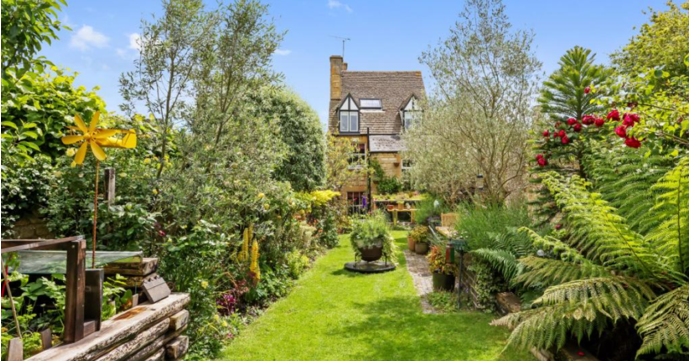Whether you’re stepping onto the property ladder for the first time, or are a seasoned property owner, it pays to understand the different types of mortgages available and how they work, as a little knowledge could save you thousands of pounds, according to Gloucester-based mortgage broker, The Mortgage Brain.
SoGlos spoke to the founder and director of The Mortgage Brain in Gloucester, to discover the options available and help homeowners navigate the mortgage maze.
About the expert – Enzo Mora, founder and director at The Mortgage Brain

With extensive knowledge of the mortgage market, Enzo Mora is passionate about helping customers every step of the way, from searching out the mortgage deal to suit them, to completing the application.
The Mortgage Brain has over 30 years’ experience helping customers find the best rates through its unique Mortgage Search System. Continually updated with the latest offers from the widest range of lenders, brokers can rapidly locate the best deal to suit a client’s individual circumstances, wherever they are on the ladder.
For more information, visit themortgagebrain.net.
What is the difference between interest-only and repayment mortgages?
Mortgages are either interest only, or repayment. An interest-only mortgage means you pay only the interest each month, so you will need to repay the capital (the whole amount of the loan outstanding) at the end of the mortgage term from savings or investments.
Lenders can insist that you demonstrate how you intend to repay the loan, as there is a risk you may not have the funds to pay off the debt.
A repayment mortgage means that you pay the interest and the capital you’ve borrowed each month. At the end of the mortgage term, you will have paid back everything borrowed and you’ll own your home outright.
What are the benefits of a fixed rate mortgage and how long do they last?
With a fixed rate mortgage, the interest rate won’t change for the agreed set period, typically two to five years.
This means you know exactly how much you will be paying each month, which can help with budgeting.
When the fixed period ends, it will usually change to the lender’s standard variable rate (SVR). If you change your mortgage product and/or lender during the period in which you are tied, early repayment charges may apply.
If interest rates are rising this year, should homeowners consider a tracker mortgage?
A tracker mortgage follows the Bank of England’s base rate as it goes up and down, so it can make budgeting difficult.
At present, rates are forecast to rise further, so a tracker may not be the best mortgage deal.
If a fixed rate mortgage is ending soon and will convert to a variable rate – what does this mean for the homeowner?
Each lender has its own standard variable rate (SVR) that it can raise at any point, meaning the total amount that you pay could change each month and any extra money paid will only go towards paying the higher interest payment, rather than paying off the capital.
SVR mortgages tend not to have an early repayment charge, so if you are hoping to pay off your mortgage quicker, or switch to a new mortgage deal in the near future, you can without any penalty.
If the SVR is low, then your monthly repayments will also be low. However, the interest rate is very often higher than other mortgages available, so you could end up paying thousands more than you need to over the term of the mortgage.
Most borrowers arrange a new fixed rate mortgage to commence when the original one ends.
What is a flexible mortgage?
Flexible mortgages allow you to make over payments as well as making reduced payments, or take payment holidays, depending on certain conditions.
However, you may still incur interest charges. You could also pay your mortgage off early and save on interest payments.
An offset mortgage is another type of flexible mortgage, where your savings are used to offset what you pay in interest each month.
Flexible deals can be more expensive, so you need to make sure that the benefits outweigh the costs – a broker like The Mortgage Brain will be able to help.
Does a cashback mortgage mean homeowners will get actual cash in their pocket?
Yes! Some lenders offer incentives to borrow from them in the form of cashback after completion.
There is likely to be an arrangement fee payable to the lender and if you change your mortgage product and or lender during the period in which you are tied, early repayment charges may apply.
A cashback mortgage may appeal to first time buyers or those who may need a lump sum to help with moving costs, but they may not be the cheapest once you consider any fees and higher interest rate.
Can self-employed people get a mortgage?
At The Mortgage Brain, we work with many lenders who have a good understanding of self-employed income sources, so we will be able to establish your affordability and show you which lenders would be best for you.
If someone is thinking of investing in a buy-to-let property, can they get a mortgage for this?
Buy-to-let mortgages are designed for people who wish to buy a property to let out. Variable and fixed rates are generally available, however, you may need a higher deposit.
Any income you get from rent must be more than you pay for the mortgage payment, and this will be considered.
How do discounted mortgages work?
A discounted mortgage is a reduction on the lenders standard variable rate (SVR) for a set period, typically two to five years.
After the discount period ends, the rate will usually change to an SVR. This is good for buyers who want a low rate, but can afford to pay more if the rates go up.
There is likely to be an arrangement fee payable to the lender and if you change your mortgage product and/or lender the period in which you are tied, early repayment charges may apply.
In partnership with The Mortgage Brain | themortgagebrain.net






















